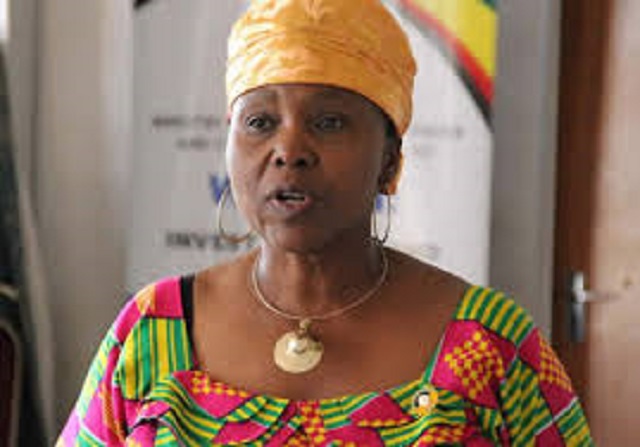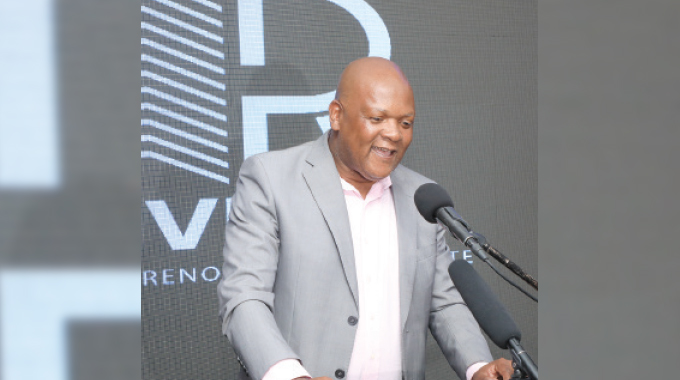Is RBZ confused about Bitcoins?

Robert Ndlovu
IT is interesting to note that the popularity of Bitcoins is increasing exponentially despite warnings from finance and economic gurus who predict that this will just become another bubble that will burst. According to Reserve Bank of Zimbabwe (RBZ) director and registrar, Mr Norman Matakura, the use of Bitcoin was in fact illegal and RBZ would not allow its use in Zimbabwe. Interesting, but many people that I know have been using Bitcoins in Zimbabwe for quite a while now. The RBZ has been sleeping on the wheel and upon waking up the best they could say is that use of Bitcoins was illegal.
This is a very unfortunate and premature statement from a senior Government official. But we do understand and sympathise with this kind of thinking and ignorance with regards to this issue. He (Matakura) is not alone in that confusion. It is quite a mammoth task to try to explain what Bitcoins are to people in general regardless of their social status or level of education. But what I am certain about is one thing. “Bitcoins are not going anywhere anytime soon.” The very nature of Bitcoins makes them impossible to ban completely. A good comparison would be an attempt to ban the use of Gmail. You must remember that there is NO one machine that controls the Bitcoin network. There is no central owner. The network runs on a number of distributed nodes connected to the internet. These nodes are commonly referred to as Bitcoin Mines and perform bitcoin mining. RBZ must get down to serious work and engage stakeholders so that they come up to speed with use of cryptocurrencies or else they will be victims of Bitcoins, which are disruptive like VoIP (Voice Over Internet). Ask mobile operators they will tell you what hit them. Calls over internet, OTT and other disruptive technologies. Why? Well you see the average organisation in Zimbabwe does not take research and development (R&D) seriously. No wonder why the telcos were caught napping when internet telephony boomed while they were hoping that the VoIP hype would just phase away.
Banks are next in line if they are not careful. Case in point is their slow uptake to mobile banking that almost sent some of them packing because of one mobile player who used his muscle to push mobile banking to dizzy height using good old text based USSD technology. But they fought back and now they have embraced mobile money as a part of the financial ecosystem. But when it comes to Bitcoins they run the risk of losing their main source of revenues in the form of charges and interests levied on all transactions. If our banks do not adapt they will suffer heavily. I am talking about situations where bank customers have to queue for hours and even over night to access their hard earned cash.
This situation alone makes the case for use of Bitcoins in Zimbabwe even stronger. Look here small business enterprises and corporations alike go through hell in order to get their foreign currency allocations from RBZ through their banks. In essence their operations are stifled. So enter Bitcoins a digital asset that does not require a middle man.
Anyone anywhere with Bitcoins can buy anything from anywhere around the globe from any merchant who accepts Bitcoins as a means of payment. We are not living in the 19th century where we must ask for permission to be part of technological innovations. No amount of threats and regulations can stop growth and use of crypto-currencies. At a time where countries like Japan, Russia and many other have officially adopted use of Bitcoins we cannot afford to look in the opposite direction. But rather take a step back and dig deeper into and unlock its value and offer people real opportunities to participate in Bitcoin trading and mining.
RBZ must stop issuing threats but avail bulk cash to banking institutions who are caught in the middle of the cash liquidity crisis. In the so called new era we hope that someone somewhere will listen and come up with constructive policies that will create an all inclusive regulatory framework for Bitcoins.
They can take a leaf from POTRAZ, the telecoms regulator who up to 2007 considered VoIP illegal. Back in 2003 I left Zimbabwe because I was working on VoIP projects at a local telco, which were considered illegal. Making calls over the internet then attracted a jail term. The thinking was that all voice traffic was supposed to be routed via designated carriers. The thinking was wrong and ill advised as evidenced by the exponential growth of communication technologies that only needed the internet layer to send and receive data be it text, voice, audio and video. Bitcoins went into circulation in 2009 after Satotshi Nakomoto published a white paper entitled “A Peer-to-Peer Electronic Cash System”.
There were very few takers of this and understanding back then. I was very sceptical at the concept at first besides the fact that I was working with colleagues in Silicon Valley who were testing Bitcoin 1.0. I ignored the tests and that was the dumbest thing I have ever done. Back then one could get a Bitcoin for less than $10. Yes you read right. Only a few enthusiasts and crazy geeks bought a few. Today it is approaching the 18 000 dollar mark. There has been very scary fluctuations in price in the last two months alone. But if you step back and take an eagle’s eye view of the pattern you will realise that the fluctuations are moving upwards. While preaching about the use and growth of Bitcoins I must state clearly that before any one jumps into the hype of signing up for mining pools that promise very attractive monthly pay out, one must exercise due diligence. Do some research on the company that is offering you these awesome deals before buying Bitcoins. Mind you only one percent of the world population knows about Bitcoins. So there is bound to be some fraudsters who will take you for a ride for your hard earned cash. Believe me you some people have lost money because they never used what is in between their ears and never did any research nor understood what they were getting themselves into when joining Bitcoin clubs.
Google up what Bitcoins are and look up some articles that I have written for this daily paper and other online publications. It will take time to get it but keep moving on. Three steps will get you started. (1) Sign up for an email address if you do not have one already as you will need it for the subsequent steps. (2) Sign up for a Bitcoin wallet account, there are several online. (3) Sign up for a Bitcoin Exchange account. All these “sign ups” are free and done online from your computer or smartphone. Once that is done you need to buy Bitcoins from someone who has them or from a Bitcoin exchange (3) and then store them in your Bitcoin Wallet (2).
Most exchanges will require you to upload a copy of your ID just like banks ask for your ID when opening an account in order to comply with KYC expectations. KYC stands for “know your customer”. This is a basic and standard security protocol, which does not change the anonymous way you use your Bitcoins. What has changed? Digital money in the form of Bitcoins are now another alternative form of transacting just like money orders then, check, Western Union, World Remit, MoneyGram, Bank wire Ecocash and Gold.
If you do not get the hang of it then I am not sure how else this can be simplified. Do not invest more than you can afford to lose. It is not too late. As I was completing this document the RBZ governor Dr John Mangudya had already said that “locals can use Bitcoins at their own risk as the central bank can not offer them any help should they get ripped of.”
This summaries the fact that this much hyped matter is least understood by senior Government officials in charge of the central bank. This is scary. We have locals who are very knowledgeable with this blockchain based technology that can be applied in other sectors like energy, real estate, health care tourism and more where records and ownership of digital assets are securely stored and transferred using advanced encryption techniques. A topic for another day.
Happy New Year !
@Robert Ndlovu. Comments, questions and donations 077.600.2605











Comments